
If there’s one category that sums up the toll of inflation in grocery, it’s butters and spreads. Over the past year, prices have risen by an average of 12.9% – or 15.7% in the case of brands.
That’s put a further dampener on volumes, which were already struggling to keep up with the pandemic-driven highs of the previous year. “After strong sales during Covid-19 due to an increase in home baking, BSM sales have slowed this year as consumer habits return to normal,” says Mathew Fleming, senior analytics executive at NielsenIQ.
“The category is now struggling due to the cost of living crisis, with high inflation slowing down volumes,” he adds.
A glance at the top 10 brands serves to illustrate his point. Eight out of 10 have shed volumes in the past year. And those with the highest price rises have suffered the most.
Take Upfield’s Flora and Bertolli. As the average price of Flora has risen 24.3%, volumes have dived 20.4%. Bertolli’s price has risen 22.2% while volumes have fallen 18.1%.
Upfield says its plant-based spreads have been particularly badly hit by the impact of the Ukraine war. “They contain oils like rapeseed and sunflower, both of which have seen massive price increases due to the unfolding crisis,” says Samuel Thomas, category management lead for Europe.
While Thomas admits these price rises have affected volumes, he adds “this is not to the extent it might have done, which reveals the equity of our heritage brands that consumers know and love”.
Upfield’s brands are far from the only ones affected. Market leader Lurpak has suffered a 17.7% slump in volumes as average prices rose 15.8%. It now comes at an average of £7.50 per kilo, making it one of the most expensive brands in the category.
Lurpak owner Arla admits “inflationary pressures are making trading conditions difficult”. However, it stresses Lurpak remains the number one BSM brand – selling £150m more than number two brand and Arla stablemate Anchor. To maintain that position, Lurpak plans to “continue driving our core position as ‘the champion of good food”, Arla says.
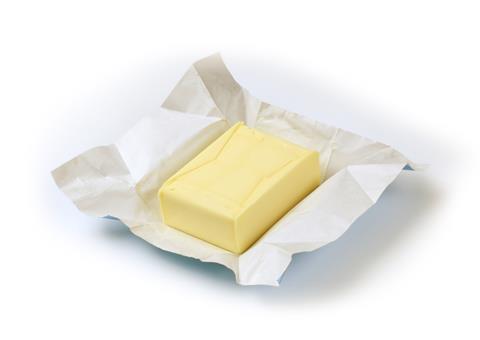
That might be a savvy strategy. Despite the pressures of inflation, consumers aren’t all migrating to cheaper brands and own label – and they can still be won over by quality.
Look at Kerrygold, which has the highest average price of the top 10 at £8.30 per kilo. It’s also one of only two top 10 brands to grow volumes, selling 3.8% more than last year.
Brand owner Ornua Foods says Kerrygold is winning due to its “rich, creamy taste and premium positioning”. These taste attributes are particularly important in the block butter segment, it adds.
“Clearly cost of living pressures are having an impact on the category as a whole, with shoppers seeking cheaper products,” says Kerry Alexander, brands director at Ornua Foods UK.
“However, this is not as apparent within the butter and in particular the block butter segment, where product attributes such as taste and usability, not just price, are still an important factor.”
A similar belief in the premium butter is evident in our Top Launch, Butterworks’ West Country Spreadable.
Butterworks says it has seen “significant growth supported by promotional activity” since its launch into Waitrose in April, and it expects growth to continue “following interest from other retailers to stock more British and regional products”.
So, in butters, it seems there is clearly still appetite for premium fare. In the case of spreads, prices is arguably more of a concern. That much is suggested by the only other top 10 brand in growth: Utterly Butterly. It has soared 19.8% in volume and 39.7% in value, propelling sales to just shy of £22m.
Brand owner Saputo highlights its price – an average of £2.82 per kilo – as a key factor in its success. “With value for money high on the agenda for many, Saputo’s Utterly Butterly offers an all-round good value spread proposition,” it says.
Saputo points out the significance of spreads within the category. “Though butter dominates the total market, contributing 54% of volume, spreads remain an important sector contributing, 40% of category volume and attracting a younger demographic.”
This importance comes through in Upfield’s value brand I Can’t Believe It’s Not Butter. While volumes have fallen in the full-year period, Upfield says it was the number one line in terms of both value and volume growth in its latest four-week data.
Own label
However, even these cheaper lines will face growing pressure from an increasingly powerful contender: private label. It remains a relatively small part of the category – 25% of the £1.36bn market – and has also suffered volume declines over the past year.
But, crucially, those declines have been at a slower rate. While brands lost 14.2% of their volumes, private label lost 9%.
The reason for that shift is clear. While brands come at an average price of £5.31 per kilo, own label butters and spreads come at an average of £4.90. Branded prices are growing faster, too – at a rate of 15.7%, while own label is up 5.1%.
A quick look at the Tesco aisles serves to highlight that price difference. A 250g block of Tesco British Salted Block Butter, included in the Aldi Price Match campaign, is £1.99. A 250g block of market leader Lurpak’s Slightly Salted Block Butter is £2.50.
As the cost of living crisis intensifies, it seems inevitable more shoppers will be drawn to cheaper private label products.
Many of the leading brands are already noting that change in behaviour. “Clearly, cost of living pressures are having an impact on the BSM category, with shoppers seeking cheaper products, switching from brand to own label and buying smaller packs,” says Ornua’s Alexander.
Upfield’s Thomas points to the same issue. “As prices have hit the category, we’ve seen huge numbers of shoppers swapping from premium butter brands, priced at nearly £10 per kilo, into own-label spreadable butters, at half the cost,” he says.
“As things stand, we don’t believe there will be any cooling-off of own-label growth for at least the whole of 2023. It’s not likely until 2024, when the market stabilises, that we might see this change,” Thomas adds.
There’s no doubt tough times lie ahead for brands. But, as this year’s quality efforts show, they are doing everything they can to prevent a race to the bottom.
Top Launch 2022
West Country Spreadable | The Butterworks
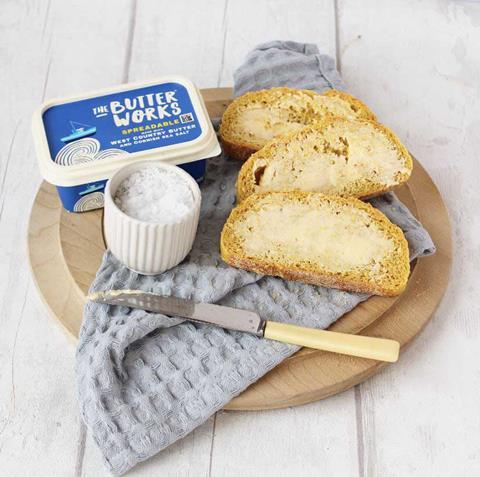
West Country cream, Cornish sea salt and British rapeseed oil combine in this butter, launched into Waitrose in April. With an rsp of £2.15 for 250g, it doesn’t come cheap. But this was a conscious choice by The Butterworks, which wanted to create a “standout product” to counteract the race to the bottom in the category. Clear provenance of ingredients is a key part of this premium proposition, as is high butter content of 68%. And crucially, as the name suggests, it spreads straight from the fridge.
The Grocer Top Products Survey 2022: How can brands stay in focus?
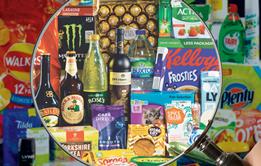
Commodity price hikes, the war in Ukraine and inflation have changed the way Brits shop in the past year, while also piling pressure on suppliers and retailers. Which brands and categories have negotiated the system shock best?
- 1
- 2
- 3
- 4
- 5
- 6
- 7
- 8
- 9
- 10
- 11
- 12
- 13
- 14
- 15
 Currently
reading
Currently
reading
Dairy – butters & spreads 2022: Spreads slip as lockdowns come to end
- 17
- 18
- 19
- 20
- 21
- 22
- 23
- 24
- 25
- 26
- 27
- 28
- 29
- 30
- 31
- 32
- 33
- 34
- 35
- 36
- 37
- 38
- 39
- 40
- 41
- 42
- 43
- 44
- 45
- 46























![Cheese ]GettyImages-664658023](https://www.thegrocer.co.uk/Pictures/80x50/1/8/6/282186_cheesegettyimages664658023_540979.jpg)












































![Cheese ]GettyImages-664658023](https://dmrqkbkq8el9i.cloudfront.net/Pictures/80x50/1/8/6/282186_cheesegettyimages664658023_540979.jpg)





























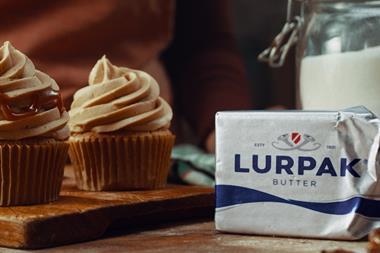
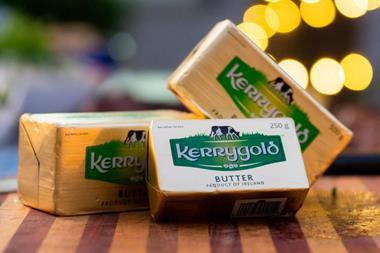
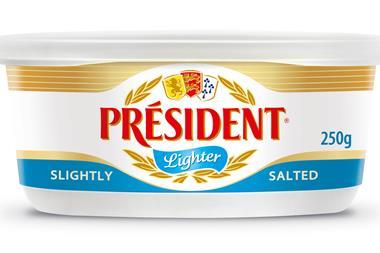
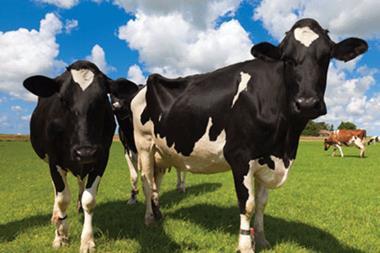
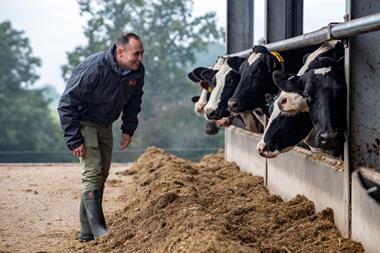





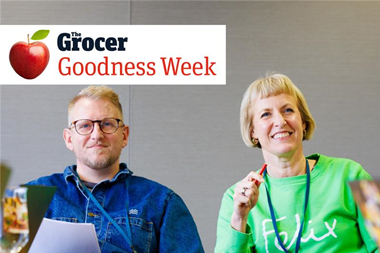

No comments yet